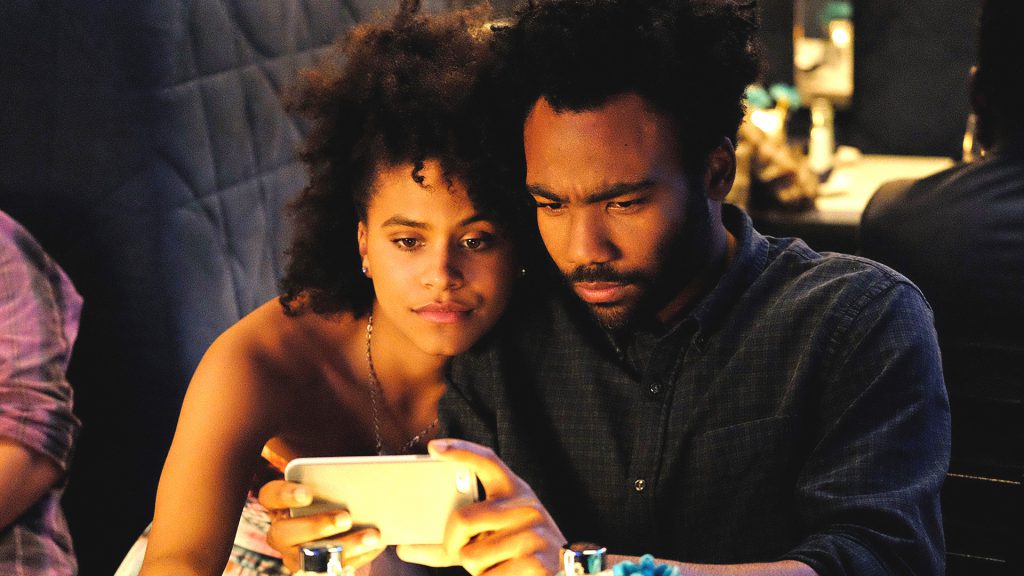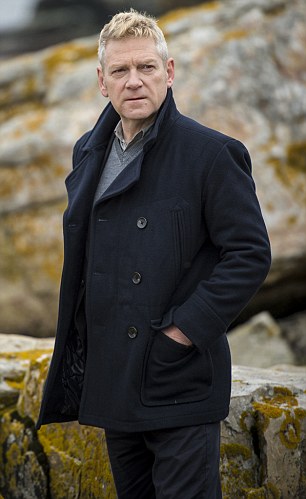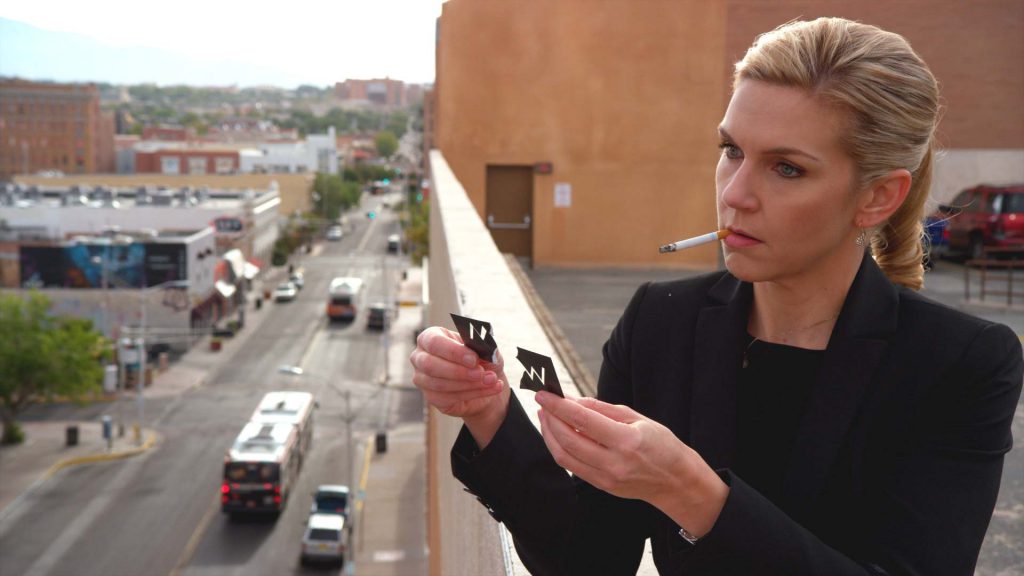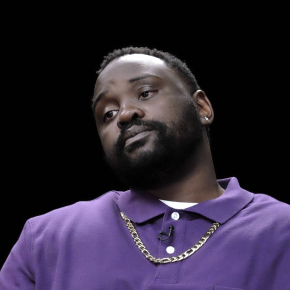
Back in November, The Washington Post reported that there is so much TV being produced in America today that Los Angeles is running out of studio space and production equipment. Now, I know you could argue that the scarcity reflects a bottomless appetite for distraction in our culture–that we’re “entertaining ourselves to death”. You’d have a point, to be sure. But that argument holds less water when you consider the wealth of great work that’s actually getting made. Meaning, while the mindless stuff will always be with us, it would appear that, at least when it comes to television, the quality of content has been increasing alongside the quantity. I’m sure this won’t always be the case, but it was in 2016, which is a little surprising, given the number of wonderful series that weren’t on the air (Mad Men, Fargo, The Leftovers, Parenthood, Hannibal, etc).
Of course, “when every Starbucks produces auteurist sad-coms and distributes them via Snapchat”, as Emily Nussbaum observed over at The New Yorker, the notion of producing a comprehensive list is, well, a joke. So the usual disclaimers apply a bit more strongly this year. (I haven’t yet gotten a chance to check out This Is Us, or The Man in the High Castle, or the ESPN OJ doc for example). Also, this one is more of a collaboration than it’s ever been (Thank you Carrie, Howie, Bryan, Ethan & CJ). You can check out last year’s round-up here.

Ten Best Series in 2016
10. The Crown. Netflix spared no expense in producing their dramatic series about the first years of the reign of Queen Elizabeth II. The opulent sets and costumes and the rich soundtrack show that the production was top-rate. But the real beauty of the series is the way that it shows the relationships Elizabeth had with her parents, her advisors, her prime minister, her sister, and her husband. The queen’s identity as an individual gives way to her role as the monarch, and the series does a beautiful job of showing her struggle in that transition, and her paving her own way to keep some of her own identity intact. The conflicts Elizabeth has with others echo the conflict she feels between a changing world and the tradition she’s charged with upholding. Elizabeth is not the only character with internal and external conflicts: Prime Minister Winston Churchill grapples with aging, Prince Philip struggles with his own identity, and the Queen Mother has to find her own place in the world as a displaced widow. Will there be more to this series? We can only hope, and with more corgis, please.
 9. Wallander. The seasons leading up to the fourth and final Wallander season captured a detective that was evading the clues of his own life. This is a pretty well-loved trope for any British crime show (Luther, Broadchurch, Netflix’s The Fall quickly come to mind), and it is certainly true of the original Swedish Wallander novels, written by Henning Mankell. There’s a certain charm to a detective who is obsessively attached to the cases he works, precisely to the extent that is obessively depressed about the way his own life has turned out. We find Kurt sleeping in his armchair, spending whole weeks in the dark, avoiding calls from his daughter, avoiding visits to his father, who is deteriorating with Alzheimer’s.
9. Wallander. The seasons leading up to the fourth and final Wallander season captured a detective that was evading the clues of his own life. This is a pretty well-loved trope for any British crime show (Luther, Broadchurch, Netflix’s The Fall quickly come to mind), and it is certainly true of the original Swedish Wallander novels, written by Henning Mankell. There’s a certain charm to a detective who is obsessively attached to the cases he works, precisely to the extent that is obessively depressed about the way his own life has turned out. We find Kurt sleeping in his armchair, spending whole weeks in the dark, avoiding calls from his daughter, avoiding visits to his father, who is deteriorating with Alzheimer’s.
But Season Four (which is three 88-minute episodes) turns that entire evasion tactic on its head. Wallander must make amends with his daughter, who now has a child; he must accept the death of his father; and he must face the reality that, he, too is mentally deteriorating. In the final episode, his detective work is as close to home as its ever been–and Wallander’s losing control in more and more obvious ways. Kenneth Branagh is heartbreaking in this episode. The closing 20 minutes of this season is a powerful ode to love (and, paradoxically, strength) abiding in weakness.
8. Bojack Horseman. This show is remarkable for it’s ability to be equal parts merciless and understanding with its characters. As Bojack’s Oscar campaign reveals that accolades won’t fill the void in his soul, his very terrible choices make you loathe and love him at the same time. Don’t let the anthropomorphic characters fool you–Bojack Horseman is the only show asking about where love can come from when “you are all the things that are wrong with you.” Sensitive viewers can skip episode 6 “Brrap Brrap Pew Pew” but episode 11, where a sky-high Bojack works the 12 steps, cannot be missed.
https://www.youtube.com/watch?v=9vf7_7CLp-I
7. Love. Judd Apatow-related productions tend to yield a similar viewing experience: seeming not-so-great until you’re waistdeep, when you realize that you’re not only charmed but also deeply moved. Love is no different. This little show slipped under the radar this year, but anyone who’s made it past the first episode (which is certainly its weakest (and crudest)) knows that this show has some chops. Making magic out of everyday situations, not with realism but truth, Love manages to balance an offbeat sense of humor with heavier topics like addiction and the characters’ fearful self-defenses. Gus, for example, uses his “nice guy” act as a weapon while Micky, though in desperate need of help, rarely lets go of her tough-girl act. The typically half-hour episodes are in no rush to the altar; in many ways, Season 1 is all exposition. An entire episode revolves around the early-stage agony of waiting for a text message. These characters bounce around each other for the entire season, and may not even be officially a “thing” by the end. The last five or so minutes are some of the best I’ve seen, effectively putting the whole season in perspective. Unassuming and moving. Can’t wait for Season 2.
6. The Jim Gaffigan Show. Jim and Jeannie Gaffigan sure know how to quit when they’re ahead. Kind of heartbreaking to know that we’ll only ever have two seasons of their hilarious, and deceptively wise, sitcom project. But man, when the two seasons are as chock full of insight and humanity as these have been, perhaps we should just be grateful. More than a few of readers have noted how both “The Trial” and “He Said She Said” watch like Mbird posts come to life. Which is a huge compliment, but one that gives us way too much credit. Maybe it’s enough to say that they remain the “go-to” source for hilarious illustrations of self-justification and religiously sympathetic commentary on social dysfunction (and food). Genuinely funny, surprisingly arty/auteurist, believably self-effacing, yet never bitter (or preachy), they even gave the best line of the season to Jesus himself: “Ah, Jeannie. I have a personal relationship with her.” The offbeat closing episode sneaks up on you, too, the final image being one of pure grace with a capital G.
5. Stranger Things. Where did this show come from?! Without warning the Demogorgon shook us out of our midsummer haze and lured us into a world of childhood glory days. Wonderfully nostalgic, Stranger Things playfully paid homage to both Stephen King (esp. It) and Steven Spielberg (esp. The Goonies/E.T.), among other defining artists of the 80s. Nostalgia aside, this show is built by its riveting story which melds sci-fi, adventure, and mostly safe horror. Throughout the show (which is basically an 8-hour movie, really) we follow several different groups of characters–the weary local police, a motley crew of kids, a family in distress, high schoolers with lots of drama–as they investigate the strange goings-on in the small, atmospheric town of Hawkins, Indiana. The kid actors are remarkable, their characters are lively, and each episode’s strange twists keep the old-timey story frighteningly fresh. (A perfect holiday-time show, by the way, for anyone still holding out–suffice it to say Christmas lights play a significant role in the plot.)
4. The Americans. If you’re thinking Felicity version of Keri Russell, or “The Walton’s – Johnboy” version of Richard Thomas, you’ve come to the wrong show. Richard Thomas plays FBI bureau chief Frank Gaad, a figure who’d been lurking in the cast for 3 seasons but takes center stage in season 4. Meanwhile, Elizabeth Jennings (Russell) and her husband Phil (the outstanding Matthew Rhys) spend most of season 4 dealing with the fact that their 15 year-old daughter, Paige (Holly Taylor) is as clever (or more so) than her parents, and has figured out that she has been conceived and raised by KGB spies in Washington DC, circa 1980. Paige also has come to believe that her parents’ Iron Curtain cold atheism is BS and has sought confidence with (who else?) her youth pastor! This then makes the pastor and his pregnant a target of the KGB. The ensuing solution of ‘what if there should be an unfortunate incident on an overseas mission trip’ is pretty priceless…
That’s not the main dilemma though. Phillip and Elizabeth receive corresponding pressure from their superiors – telling them that “now that Paige knows, she must be recruited into the family business”. That’s the dynamic tension of season 4, and it’s the best in the series, and it still comes with all of the Phillip and Elizabeth unrequited love for each other (amidst dirty deeds for the Russians) that defines this excellent FX spy thriller. Add in Phillip’s dalliance with trying to find peace in his life via self-actualization and ESP (to Elizabeth’s chagrin) and you have the best dysfunctional marriage on TV, and your total spy fix.

3. Better Call Saul. What would the parable of the prodigal son look like minus the father? Especially if it were set in post-millennial Albuquerque, New Mexico? We no longer have to wonder. Vince Gilligan and Peter Gould have effectively answered that question by defeating the odds (a la Slippin’ Jimmy himself) and delivering such a stellar season that it feels less and less appropriate to refer to the show as a “spin-off”. Things deepened all the way around in their encore outing, the relationship between the two brothers reaching operatic heights, while the parallel saga of Mike Ehrmentraut gained grit and steam and all-around badassery. The complicated, unsung hero this season is Kim Wexler (Rhea Suborn), who proved more than capable of carrying a spin0ff of her own. And it’s always fun to watch Ed Begley do his thing. As the stakes rise and the protagonists’ relationship to the law grows ever more, er, elaborate, one thing is clear: don’t hold your breath for the fatted calf.
2. Rectify (final season): There is a definitive scene at the end of the movie Unbreakable in which Bruce Willis stumbles into his house (after being out dealing with things way beyond his emotional maturity level) and scoops up Robin Wright (his estranged wife) and carries her to bed and says to her “I had a bad dream”. That dream wasn’t a dream. In Rectify, Daniel Holden (a death row inmate in South Georgia incarcerated for 19 years before DNA evidence exonerates him) has a 20 year long bad dream that isn’t a dream either. Through four seasons, we get to watch Daniel and his extended family, who lived their own version of that dream, reconnect, struggle, and find redemption and hope as they find their identities both individually and collectively. Watch Teddy’s character arc in particular–perhaps the best written secondary character in TV drama history. Also watch for Aden Young (Daniel) to finally get a well deserved best actor nomination. Writer/Director Ray Mckinnon has created a masterpiece. The best written show on television, and one which will no doubt enjoy a post-run cult following similar to the likes of Friday Night Lights. Start now!
 1. Atlanta. We knew Donald Glover was talented, but I don’t think anyone had any idea how much. He could’ve easily played it safe and produced a ‘clapter-fest’ to charm the critics. He did the opposite, and in the process created the most exciting, unpredictable, and substantial show on television. I can’t remember a more impressive mid-season run than what they pulled off with “The Striesand Effect”, “Nobody Beats the Biebs”, “Value” and “B.A.N.”–each successive episode making it clear that Glover is playing by no one’s rulebook but his own (who says the same show can’t shift genres from week to week?!). It helps that he’s collected such a brilliant cast. Brian Tyree Henry’s performance as Paper Boi is magnificent, Zadie Beetz as Van, too. And don’t even get me started on Darius (Keith Stansfield), the breakout role of the year. These are characters unlike any we’ve seen on television before. The jokes are brilliant, the relationships are true, the thematics are both topical and universal. “Value” deconstructs status and law (and gender), “The Streisand Effect” takes on social media, and “B.A.N.”, well, that one blows the roof off of identity politics in a way that I still can’t believe ever got financed. And yet, somehow, nowhere did Glover sacrifice aesthetics for the sake of ‘a statement’. It all works, even the subdued finale.
1. Atlanta. We knew Donald Glover was talented, but I don’t think anyone had any idea how much. He could’ve easily played it safe and produced a ‘clapter-fest’ to charm the critics. He did the opposite, and in the process created the most exciting, unpredictable, and substantial show on television. I can’t remember a more impressive mid-season run than what they pulled off with “The Striesand Effect”, “Nobody Beats the Biebs”, “Value” and “B.A.N.”–each successive episode making it clear that Glover is playing by no one’s rulebook but his own (who says the same show can’t shift genres from week to week?!). It helps that he’s collected such a brilliant cast. Brian Tyree Henry’s performance as Paper Boi is magnificent, Zadie Beetz as Van, too. And don’t even get me started on Darius (Keith Stansfield), the breakout role of the year. These are characters unlike any we’ve seen on television before. The jokes are brilliant, the relationships are true, the thematics are both topical and universal. “Value” deconstructs status and law (and gender), “The Streisand Effect” takes on social media, and “B.A.N.”, well, that one blows the roof off of identity politics in a way that I still can’t believe ever got financed. And yet, somehow, nowhere did Glover sacrifice aesthetics for the sake of ‘a statement’. It all works, even the subdued finale.
In a year of great television, Atlanta stands out as the boldest, freshest, smartest and most heartfelt show on the air. It marks the emergence of a worldclass sensibility.
Four Best Single Episodes (of Great Shows Not Mentioned Above)
4. “Advanced Pretend”, Togetherness. Had they stuck the landing, this show would’ve made the main list. Alas, the finale was just 15% too far-fetched to register on the same rarified frequency the Duplass brothers had explored in the series up to that point. But “Advanced Pretend” contained all the elements that made this “sad-com” such wonderful viewing: plenty of Amanda Peet, and a moving yet unsentimental depiction of middle-aged male friendship. It also contains one of the year’s most touching grace-notes (in the form of a memorable cameo).
![]() 3. “Bachman’s Earning’s Over-Ride”, Silicon Valley. With all due respect to the creators of Veep, this episode was as old-school funny as the small screen got this year–which is very, very funny indeed. T.J. Miller somehow outdid himself (no small feat, considering the first two seasons). But it’s the totally unexpected grace element that elevates this particular episode above the competition: the falling on the sword and ensuing reconciliation without undercutting the core absurdity of the show–something that’s near impossible to do. The fact that so much of this show is apparently right on the money only boggles the mind further. Mike Judge may be a genius.
3. “Bachman’s Earning’s Over-Ride”, Silicon Valley. With all due respect to the creators of Veep, this episode was as old-school funny as the small screen got this year–which is very, very funny indeed. T.J. Miller somehow outdid himself (no small feat, considering the first two seasons). But it’s the totally unexpected grace element that elevates this particular episode above the competition: the falling on the sword and ensuing reconciliation without undercutting the core absurdity of the show–something that’s near impossible to do. The fact that so much of this show is apparently right on the money only boggles the mind further. Mike Judge may be a genius.
2. “The Door”, Game of Thrones. Nothing to say that Will didn’t already say back in May, except that six months later I can still feel the ending of that episode. High-octane marquee television at its best, and as well-done a “reveal” as the medium is capable of.
1. “Nosedive”, Black Mirror. Again, not much to add to Ethan’s brilliant unpacking from a couple months ago. Charlie Brooker and co managed to sum up every social media thinkpiece with alarming precision, and Bryce Dallas Howard gave one of the year’s best performances on any screen. Most unexpected, though, was the not-completely-nihilistic ending.
Honorable Mentions: Westworld, Veep, Outcast, Designated Survivor
Best Mini-Series: The Night Manager
Most Overrated: The People vs. OJ Simpson (a few of the lead performances were stunning though, e.g, Courtney Vance, Sarah Paulson & John Travolta), Mr. Robot, The Walking Dead
Most Looking Forward To: final season of The Leftovers, Fargo season 3 (Gaffigan!), Game of Thrones, new Rick and Morty, and possibly more of The Cosmopolitans.
Rest in peace, Alan Thicke:
For more 2016 favorites (Music, Media, Humor, Books), click here.

COMMENTS
7 responses to “The Best of the Year in Television 2016”
Leave a Reply













What ? No “Mozart in the Jungle”? Otherwise, spot on a mbird.